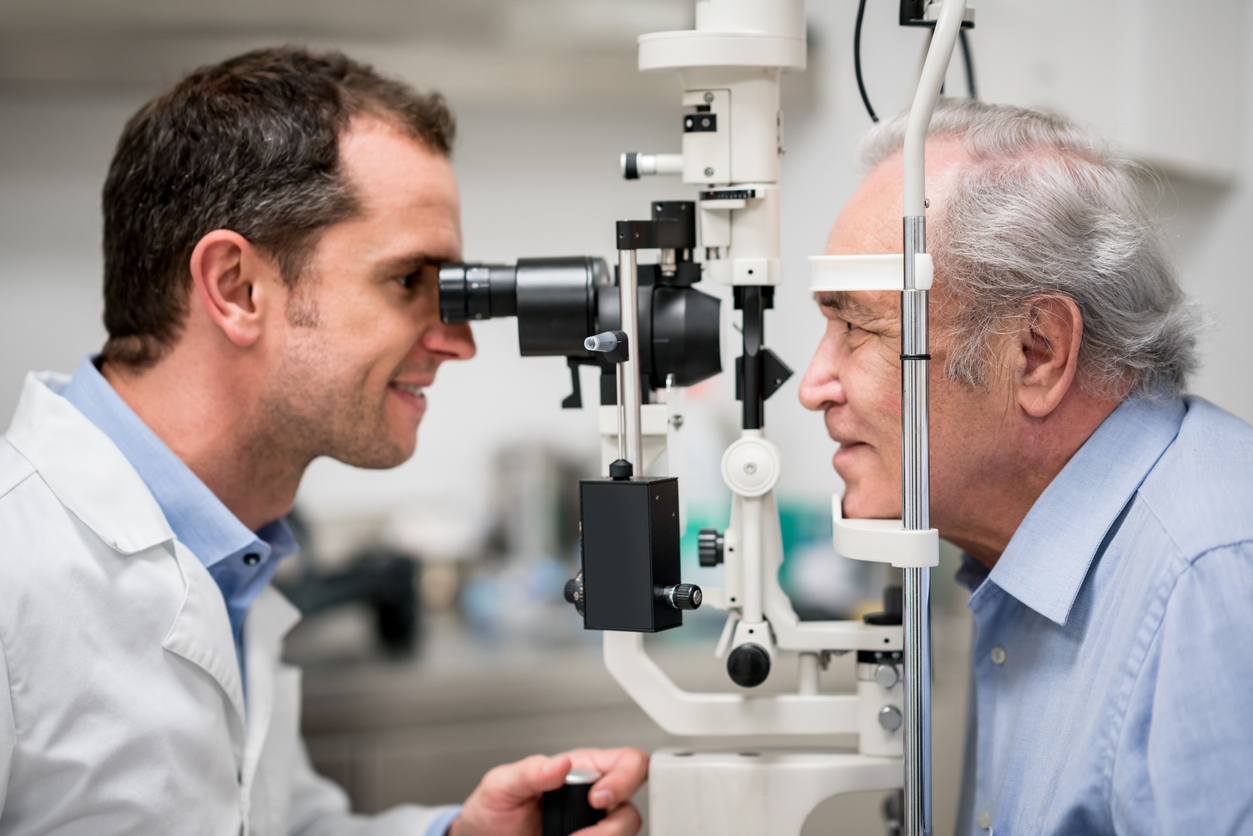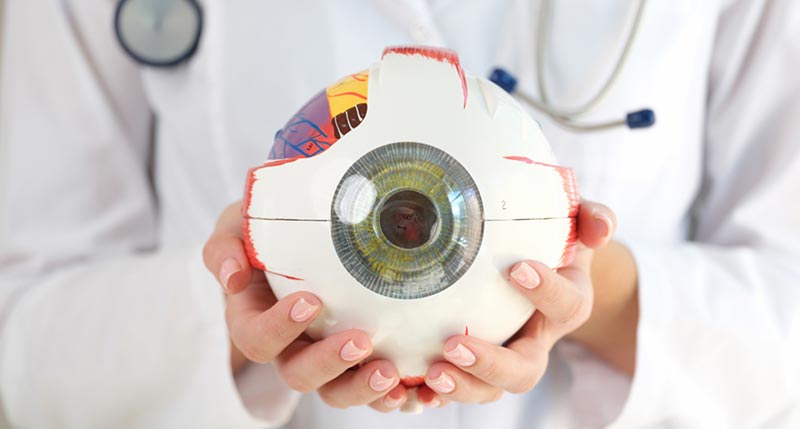Optometrist Montgomery: Top Quality Eye Care and Vision Solutions
Optometrist Montgomery: Top Quality Eye Care and Vision Solutions
Blog Article
The Significance of Normal Eye Exams: Insights From a Skilled Optometrist
Routine eye exams function as a critical part of health care that extends beyond mere vision improvement. A seasoned eye physician can offer understandings into just how these examinations not only discover typical eye conditions however also disclose underlying health problems that might or else go undetected. The silent development of illness such as glaucoma and macular deterioration emphasizes the necessity of very early discovery. Recognizing the regularity and significance of these evaluations can ultimately affect one's long-term wellness trajectory, increasing the concern of just how commonly individuals need to prioritize their eye health and wellness in the context of total wellness.
Benefits of Regular Eye Exams
Although many people might ignore the importance of routine eye examinations, these analyses play a crucial function in keeping overall health and well-being. Routine eye assessments serve not only to examine vision however also to discover early signs of systemic wellness issues, including diabetes and hypertension. By recognizing these problems at their beginning, clients can obtain timely interventions, significantly improving long-lasting results.
Additionally, eye tests can aid in monitoring existing health and wellness concerns, guaranteeing that any kind of modifications in vision or eye health are quickly addressed (optometrist). The assessments enable customized suggestions concerning eyewear, way of living adjustments, and safety procedures against potential eye pressure or damages
Beyond physical health and wellness, the benefits of regular eye examinations expand to improving top quality of life. Eventually, prioritizing eye exams promotes a proactive approach to health and wellness administration, encouraging people to take cost of their well-being.
Common Eye Issues Detected
Normal eye examinations are crucial in spotting a range of common eye problems that can dramatically affect vision and overall health. Among the most widespread problems identified during these examinations are refractive mistakes, consisting of myopia (nearsightedness), hyperopia (farsightedness), and astigmatism. These problems usually show up as blurred vision and can be conveniently corrected with prescription glasses or contact lenses.
Another typical concern is glaucoma, a team of eye illness that harm the optic nerve, commonly linked to increased intraocular pressure. Early detection is critical as it can prevent permanent vision loss.
Age-related macular degeneration (AMD) is one more considerable condition that impacts main vision, specifically in people over 50. Lastly, diabetic retinopathy, a problem of diabetic issues, can lead to severe vision problems if not checked routinely. With detailed eye exams, these conditions can be recognized early, enabling prompt management and therapy to protect vision and boost high quality of life.
Value of Early Detection
Early discovery of eye problems plays an important function in maintaining vision and avoiding considerable wellness issues. Several eye diseases, such as glaucoma, diabetic person retinopathy, and age-related macular degeneration, can advance calmly without noticeable signs and symptoms in their beginning. By the time signs materialize, irreparable damage might have occurred, causing long-term vision loss.
Routine eye exams facilitate very early diagnosis, permitting prompt treatment and treatment. As an example, treating raised intraocular pressure can avoid the beginning of glaucoma, while handling blood sugar levels can substantially decrease the threat of diabetic retinopathy. Furthermore, problems like cataracts can be successfully managed with surgical intervention when determined early.

Just How Frequently Should You See?
Establishing the frequency of eye exams is essential for keeping optimum eye health and wellness and vision. The general recommendation for grownups is to have a detailed eye test every one to 2 years, depending upon individual threat elements and age. For individuals learn this here now aged 18 to 60, a test every 2 years is normally adequate if no vision problems are existing. Nonetheless, those over 60 need to think about annual examinations, as the risk of age-related conditions raises considerably.
People with particular risk aspects, such as a family history of eye condition, diabetes mellitus, or existing vision issues, might need even more regular evaluations. Children need to have their very first eye examination at six months of age, followed by additional examinations at age three and before getting in institution. Routine exams during youth are important as vision can change rapidly throughout developing years.
Ultimately, the frequency of check outs need to be customized to every individual's circumstances, including lifestyle, work-related threats, and any pre-existing eye conditions. Consulting with an eye care specialist can give personalized recommendations, guaranteeing that your eye health and wellness is regularly kept an eye on and maintained.
Tips for Your Eye Exam
Getting ready for your eye exam can enhance the effectiveness of the browse through and guarantee a comprehensive assessment of your eye health and wellness. To optimize your time with the eye doctor, it is essential to collect pertinent info prior to your visit this site appointment. Start by assembling a list of any type of medicines you are currently taking, consisting of over-the-counter medications and supplements, as these can impact eye health and wellness.
Furthermore, document any kind of symptoms you have experienced, such as blurred vision, discomfort, or frustrations. This info will certainly help your eye doctor in detecting possible issues. If you wear glasses or call lenses, bring them along, also if you do not wear them frequently. This will certainly aid the doctor examine any type of adjustments in your vision.
It is additionally valuable to have a family history of eye conditions handy, as hereditary variables can add to your eye wellness. Ultimately, take into consideration arranging your exam for a while when you are much less hurried, allowing you to ask inquiries and discuss your worries extensively. By preparing properly, you make certain that your eye examination is productive and that your optometrist has all the necessary details to give the most effective care possible.

Final Thought
Regular eye examinations play a crucial function in maintaining both vision and overall health. Eventually, focusing on extensive eye analyses adds considerably to the preservation of vision and the renovation of top quality of life, underlining the necessity of routine eye treatment in preventive medical care strategies.
Routine eye tests are critical in discovering a range of typical eye conditions that can substantially affect vision and more info here general wellness.Identifying the regularity of eye tests is important for maintaining optimal eye health and vision.Preparing for your eye exam can boost the performance of the browse through and ensure a comprehensive assessment of your eye health and wellness (optometrist). By preparing effectively, you make certain that your eye test is effective and that your eye medical professional has all the necessary information to supply the best treatment possible
Inevitably, prioritizing comprehensive eye analyses contributes dramatically to the preservation of vision and the renovation of high quality of life, underlining the need of regular eye care in preventative healthcare approaches.
Report this page